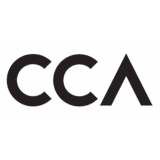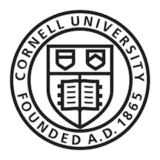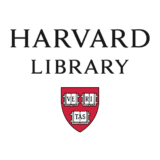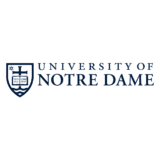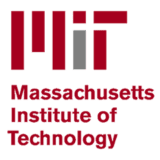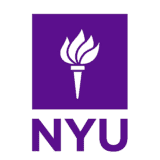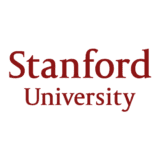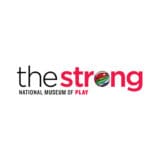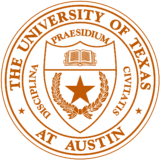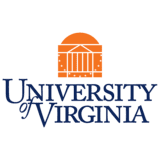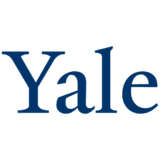Mission
The Software Preservation Network (SPN) is a coordinated, distributed effort to ensure long term access to software through community engagement, infrastructure support, and knowledge generation.
Guided by the belief that software is critical information infrastructure, SPN works to create a space in which organizations and individuals from cultural heritage, industry, academia, government, and the public sphere can contribute their myriad skills and capabilities toward collaborative solutions that will provide persistent access to software and software-dependent data.
We believe that software should be curated and preserved because it is both: a dependency to access existing digital data and because it has intrinsic cultural value due to its mediating role in our lives. Software is critical information infrastructure.
Our work transforms isolated experiments into a shared foundation for long-term digital stewardship. We:
- Champion legal reforms that protect and empower preservation
- Sustain open-source tools like Emulation-as-a-Service Infrastructure (EAASI) to enable scalable access
- Standardize metadata and documentation for reuse and discovery
- Foster professional development, mentorship, and field-wide learning, so institutions of all sizes can build internal capacity and align with emerging best practices
- Prioritize equity and access across all programs and practices, ensuring that the benefits of preservation infrastructure are distributed, not centralized
SPN is committed to fostering an open, inclusive, and safe environment. Please see our Code of Conduct for more information.
How SPN Works as a Whole
An Integrated Ecosystem for Action and Impact:
Coordinating Committee
The Coordinating Committee of the Software Preservation Network (SPN) was established in March 2019 to serve as the core body of governance of the organization. Its primary function is to maintain connections between the members, and the concerns and resources, of what is a globally distributed and collaborative organization. Among its coordination activities are annual reviews and approval of organizational goals and strategies, providing high-level guidance to SPN staff on day-to-day operations for the coming year, reviewing and approving budgets developed and proposed by staff, and reviewing steps to ensure continuity of SPN activity.
Working Groups
SPN Working Groups are organized around the network’s core activity areas. Each group brings together members to tackle key components of software preservation, from legal strategy and metadata to community building and technical infrastructure. Working Groups have clearly articulated scopes and action plans that map to SPN Mission, Vision, Values, and Strategic Goals. The outputs of these Working Groups, which include community calls and forums, sustain an open, peer-driven space for shared learning and experimentation. Learn more about SPN’s Working Groups here!
EAASI Research Alliance
The international EAASI Research Alliance, convened by the Software Preservation Network, is a multinational community of libraries, archives, and museums that utilize the EAASI software to broaden access to digital collections of culture and scholarship.
Together, these organizations explore how the EAASI software can be used to provide and preserve access to software-dependent collections for educational and research purposes. SPN is the exclusive entry point to the Alliance, and qualified libraries, archives, or museums who are members of SPN have the option to participate in the Alliance as part of their SPN member benefits. Learn more about the EAASI Research Alliance here!
Our Impact
Anti-Circumvention Exemption for Software Preservation
Since 2017, the Cyberlaw Clinic (with sincere appreciation to Chris Bavitz, Managing Director of the Cyberlaw Clinic and Kendra Albert, Clinical Director at the Cyberlaw Clinic), has successfully represented SPN in the proceedings for exemptions to the anti-circumvention provisions in US copyright law. SPN has also worked closely with Mx. Albert and students at the Cyberlaw Clinic on two editions of A Preservationist’s Guide to the DMCA Exemption for Software Preservation, 2nd Edition.
Fair Use Best Practices for Software Preservation & Fair Dealing
Since 2017, SPN has published a number of reports on community best practices surrounding software preservation as a way to outline clear guidelines for the application of fair use to the preservation of software and software dependent materials including:
- The Copyright Permissions Culture in Software Preservation and Its Implications for the Cultural Record
- The Code of Best Practices for Fair Use in Software Preservation
- Copyright Guide to Scientific Software
- Section 30.1 and Software Collections: A User’s Guide
- Section 108 and Software Collections: A User’s Guide
Understanding the State-of-the-field:
In 2022, the Software Preservation Network’s Research-in-Practice Working Group published their findings from a multi-year survey-and interview-based study of software preservation service providers, including archivists, librarians, preservation specialists, technologists, and other information professionals in Supporting Software Preservation Services in Research and Memory Organizations
In 2023, the Video Game History Foundation and the Software Preservation Network co-published Survey of the Video Game Reissue Market in the United States. Written by SPN member Phil Salvador, results of the survey revealed that only thirteen percent of historical video games published in the United States are currently in release–raising questions about whether the commercial market alone can adequately preserve the medium of video games, particularly for the needs of researchers.
Building Capacity and Broadening Participation:
The SPN Metadata Working Group has grounded its work on the Software Metadata Recommended Format Guide (SMRF) in the understanding that most stewardship organizations have not actively collected software, and by extension, their current digital asset/data management/repository systems and curation workflows do not yet include metadata specific to software.
Members
-
Canadian Centre for Architecture
Montreal, Quebec -
Cornell University
Ithaca, New York -
Georgia Tech
Atlanta, Georgia -
Harvard Library
Cambridge, MA -
Hesburgh Libraries of Notre Dame
Notre Dame, Indiana -
Massachusetts Institute of Technology
Cambridge, Massachusetts -
National Film and Sound Archive of Australia
Canberra, Australia -
New York University
New York, New York -
Penn State University
State College, Pennsylvania -
Stanford University
Palo Alto, California -
The Strong National Museum of Play
-
University of Texas at Austin
Austin, Texas -
University of Virginia
Charlottesville, Virginia -
Yale University
New Haven, Connecticut
Values

Community
SPN connects and engages the diverse communities of information and communication technology, cultural heritage preservation, law, public policy, social science, natural science, arts, and humanities organizations that create, use and curate software.

Sustainability
SPN encourages the software development and research communities to build tools; develop methodologies; create robust documentation; and adhere to practices for software that facilitate long-term access.

Access
SPN enables long-term access to software and software-dependent cultural heritage through standards development, documentation, software development, and training.

Transparency
SPN is dedicated to earning the trust of our broad community through open documentation, open processes, and open standards.

Advocacy
SPN raises awareness for the essential role of software preservation in effective digital stewardship through the combined efforts of collecting organizations, academic researchers, legal experts, software developers & vendors, archivists, media archaeologists, and information technology professionals.
Icon made by gravisio from www.flaticon.com
